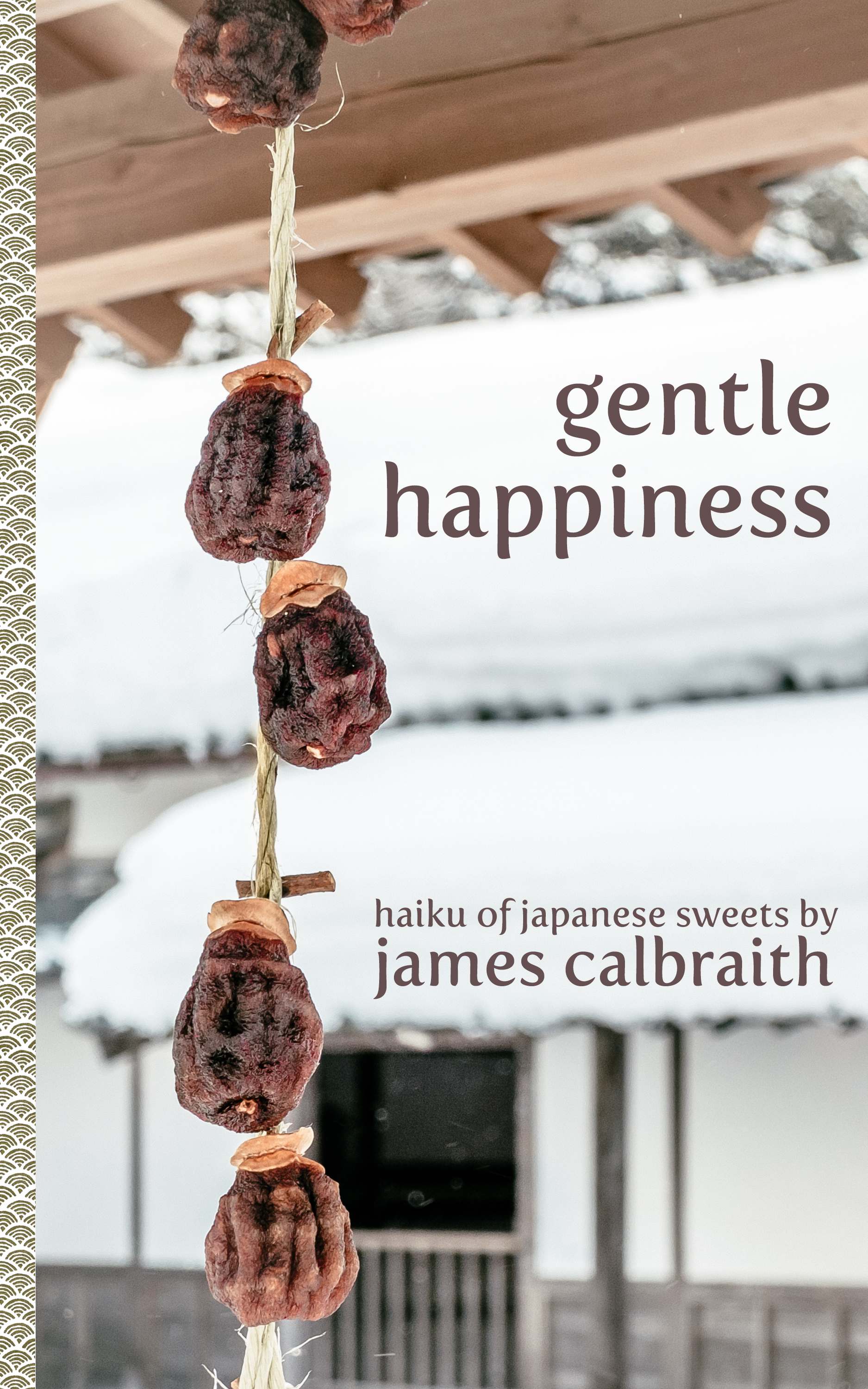
Either as a crucial ingredient of the tea ceremony, an important element of shrine rituals, or simply as a way to cool oneself during the scorching Japanese summer, sweets are as central to Japanese life and culture as poetry or gardening. To me, they have also been a way to experience this culture - and some of my best memories of Japan are in one way or another connected with its myriad snacks. One summer night, I started writing haiku about these memories - the result of which is this little book.
Poetry and sweets
What more does a wise man need
On this summer night
1. Okashi
Poetry and sweets
What more does a wise man need
On this summer night
The first Japanese sweets were made from roasted chestnuts in the late Jomon period. The true confectionery was brought in from Tang China, together with Buddhism and classic poetry. Since then, the history of Japanese culture is inextricably joined with that of Japanese sweets. Through famine and prosperity, through war and peace, influenced by foreign traders and ancient traditions, the snack has become as much a symbol of Japan as cherry blossom, geisha - or haiku.
2. Jo-Namagashi — Nerikiri
Crimson maple leaf
Falls towards the tea tray —
Lands next to the cup
The "wet" tea ceremony snacks, namagashi, are the king of the Japanese sweets — and among them, Nerikiri is the Emperor. These are the tiny, colourful sculptures of soft dough that most people associate with the traditional Japanese confectionery. They are as seasonal and precious as Japanese poetry, little haiku made of rice flour and sugar.
3. Rakugan
Found in the attic
Who bought us this box of sweets?
The dust remembers
Pastel-coloured hard candy made from fine rice flour and refined sugar, and pressed into elaborate shapes in sculpted moulds, dry Rakugan keeps fresh for a long time, and is therefore among the favourite souvenirs from far-away travels.
| Language | Status |
|---|---|
|
German
|
Already translated.
Translated by Jenny Riemer
|
|
Italian
|
Already translated.
Translated by valentina staffieri
|
|
Japanese
|
Translation in progress.
Translated by Isamu Mugiuda
|
|
Portuguese
|
Already translated.
Translated by Flávio Ferreira Marinho
|
|
Spanish
|
Already translated.
Translated by Bárbara Villarreal González
|